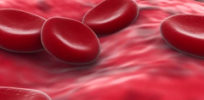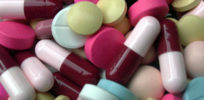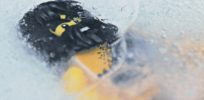New Scientist
Cervical cancer virus DNA can be detected in urine
Dread going for a smear test? A simple urine test can pick up the human papilloma virus (HPV) that causes ...
Some people with Alzheimer’s brain plaques rev up cognition to compensate
It's one of the biggest mysteries of Alzheimer's. The disease is associated with the formation of protein plaques in the ...

Playing God: An unapolgetic transhumanist manifesto
If you've ever fantasised about uploading your mind to the internet, or gestating your genetically modified children in an artificial ...
Early autism interventions, before 12 months, appear effective
Early interventions may be effective at treating the symptoms of autism in very young infants, according to a pilot study ...
World Health Organization accelerates program to test Ebola drugs
Science to the rescue in West Africa? The World Health Organization is launching a crash programme to test experimental treatments ...
New growth standards for infants ignore natural genetic variation
Babies come in all shapes and sizes – or so you might imagine. But according to new international growth charts, ...
Spanish longevity genes linked to cholesterol metabolism
Hold the butter! The genetic secrets of centenarians are starting to be unravelled – and they hint that low cholesterol ...
After transplant, nasal cartilage acts like a knee, even down to the genes
If you need a new knee, look no further than the end of your nose. It turns out that nasal ...
GM yeast can replace poppies in producing opiates
Severe pain? Reach for the yeast. Genetically engineered yeasts can now efficiently produce a range of opiates, including morphine and ...
Humans pushed Neanderthals to extinction, research suggests
Guilty as charged. Over the years, humans have often been accused of killing off our Neanderthal cousins, although climate change, stupidity and even bad ...
Term ‘genetic modification’ loaded with baggage, undermining rational debate
With food security firmly on the international agenda, there's a growing appetite to look again at the opportunities promised by ...
Scientists attempt to determine role of epigenetics in cancer
You could be forgiven for thinking of cancer as a genetic disease. Sure, we know it can be triggered by ...
Anti-GMO groups seek to remove Europe’s chief scientific adviser
If you can't change the science, change the scientists. This is what nine groups opposed to genetically modified organisms want ...
Synthetic biologist wants to elegantly engineer genomes
Synthetic biologist Hamilton Smith wants to find the smallest genome that will keep a bacterium alive – and tidy up ...
Smell receptors found all over the body; those in skin may help healing
There are more than 350 types of olfactory receptors in the nose, tuned to different scents. About 150 are also ...

Genetically engineered red blood cells could be drug delivery drones
Red blood cells may one day do more than carry oxygen around the body – they have been genetically engineered ...
Computer program reads facial features to identify rare genetic diseases
Doctors faced with the tricky task of spotting rare genetic diseases in children may soon be asking parents to email ...
Earliest case of irrigation-loving parasite found in Fertile Cresent
The law of unintended consequences may have a longer history than we thought. At a Neolithic settlement in the region ...
Brain responds to sunbathing like other addictions
Can't resist getting a tan despite the risks? It might be more than a habit. That's the suggestion from a ...
CRISPR editing might stop HIV
Take a hot new method that's opened up a new era of genetic engineering, apply it to the wonder stem ...
Humans speed natural species extinction by 1,000 years
First the bad news. Humans are driving species to extinction at around 1000 times the natural rate, at the top ...
Near-extinct American chestnut trees make comeback with help from genetic modification
The near-extinct American chestnut looks set to make a comeback. Genetically modified trees, which are resistant to a deadly fungus ...

Antibiotics can harm even when they work, contributing to allergies, diabetes, maybe autism
Antibiotics have ended untold human misery by curing bacterial infections, yet we are losing these wonder drugs. New Scientist has ...

Cold case: Cryogenics may enter modern emergency care
Cryogenic preservation has long been fodder for science fiction films. But, emergency room doctors in Pittsburgh hope to save severely ...
Baby’s microbiome may come from mom’s mouth via placenta
Babies in the womb are not as sheltered from the outside world as you might think. The placenta harbours a ...
Synthetic bio breakthrough: Flies that make new amino acids
The genetic code of the fruit fly Drosophila has been hacked into, allowing it to make proteins with properties that ...
Clues in polar bear genes may help understanding of obesity
It turns out that the largest land predators alive have a host of genetic tricks to help them survive their ...
Stem cell trial for stroke shows potential for lasting benefits
People who received the world's first stem cell treatment for strokes have shown measurable reductions in disability and handicap a ...

